GENERAL SITUATION IN MEXICO

Weekly Review I February 12, 2025


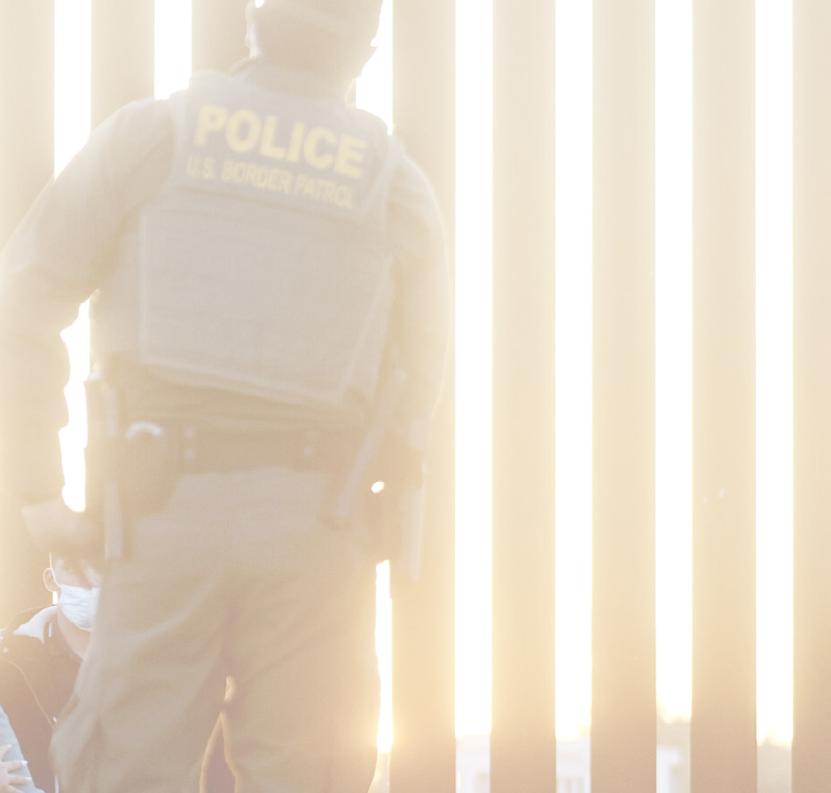



Weekly Review I February 12, 2025







Trump imposed a flat 25% tariff on all steel and aluminum imports without exceptions, aiming to support domestic industries but increasing the risk of a broader trade war.
• Trump signed proclamations raising aluminum tariffs from 10% to 25% and eliminating country-specific exemptions and product-specific exclusions.
• The new tariffs, effective March 4, will apply to imports from Canada, Brazil, Mexico, South Korea, and other previously exempted nations.The measure simplifies the tariff structure, ensuring uniformity across all countries.
• Trump hinted at a possible exemption for Australia due to its trade deficit with the U.S.The tariffs extend to downstream products such as fabricated structural steel, aluminum extrusions, and steel strands used in construction.
• Trump also announced forthcoming reciprocal tariffs on countries imposing duties on U.S. goods, including potential tariffs on cars, semiconductor chips, and pharmaceuticals.
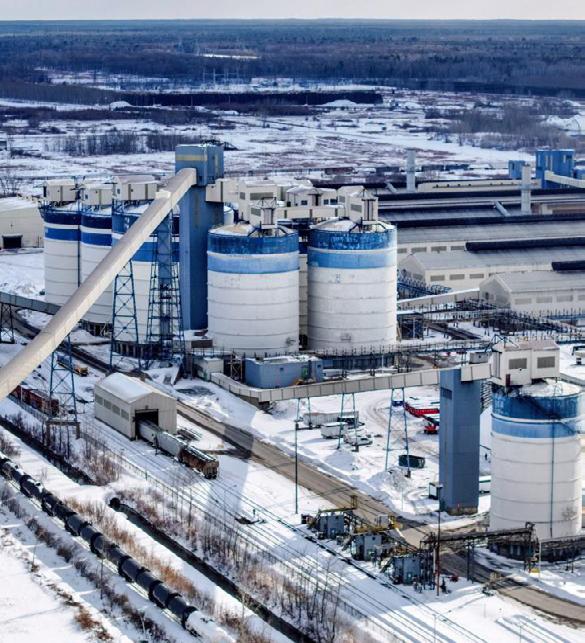
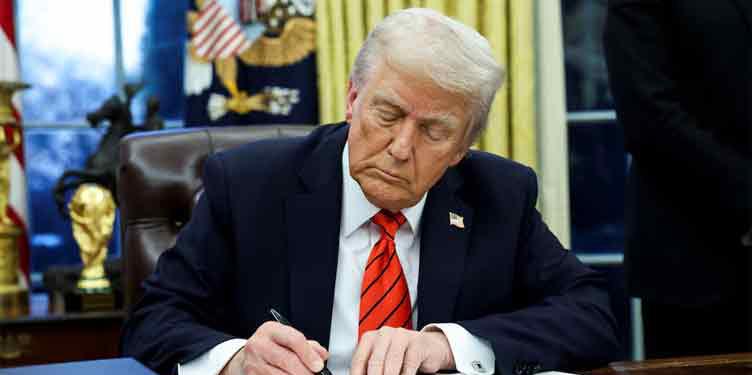
• The decision extends the 2018 Section 232 tariffs, initially imposed for national security reasons, aiming to curb imports of minimally processed Chinese and Russian metals.
• U.S. aluminum production has declined significantly, from 3.7 million metric tons in 2000 to just 670,000 metric tons in 2023.
• Canada remains the dominant supplier, accounting for 80% of U.S. primary aluminum imports in 2024.
• Steel imports made up 23% of U.S. steel consumption in 2023, with Canada, Brazil, and Mexico as the top suppliers.
• The tariffs risk escalating trade tensions, with potential retaliation from affected nations.
• The White House argues that previous exemptions weakened the effectiveness of tariffs and that the new measures will prevent foreign dumping.
• The move aligns with Trump’s broader strategy of using tariffs as leverage in trade negotiations.
• Given Trump’s statements on reciprocal tariffs, uncertainty remains regarding future trade policies, particularly in key industries such as automobiles, technology, and pharmaceuticals.
SOURCE: REUTERS
• Sheinbaum acknowledged that news of potential tariffs surfaced through media reports and stated that her government would adopt a “cool-headed” approach before making any formal decisions.
• She intends to establish communication with Trump following the official announcement to discuss the implications and potential negotiations.
• The Mexican government maintains its stance on cooperation and coordination with the U.S. while prioritizing national sovereignty.
• If implemented, the tariffs could significantly impact Mexico’s steel and aluminum exports, as the country is the third-largest steel supplier to the U.S.
• According to the American Iron and Steel Institute, Canada accounts for nearly a quarter of U.S. steel imports by weight, while Mexico represents approximately 12%.
• Given the reliance of U.S. industries on North American steel, the tariffs could strain supply chains and affect cross-border trade relations.
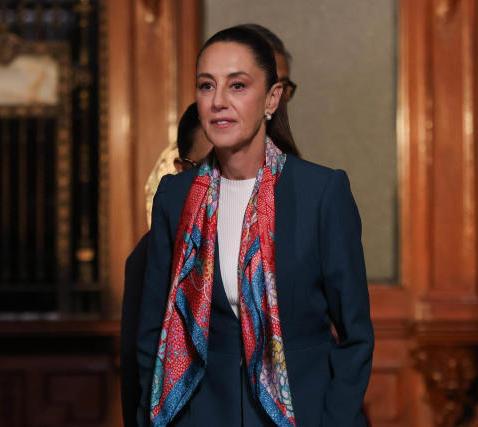
• Mexico and Canada, as key suppliers of steel to the U.S., may seek diplomatic or economic responses to mitigate the impact of the tariffs.
• Sheinbaum reaffirmed her administration’s commitment to maintaining a strong bilateral relationship with the U.S. while safeguarding Mexico’s economic interests.
• The situation underscores ongoing trade tensions between North America’s economic partners and the potential challenges of navigating Trump’s protectionist policies.
SOURCE: CNNESPANOL
Trump says Mexico’s efforts to avoid tariffs are ‘not enough’
• In an interview with Fox News, Trump acknowledged that Mexico and Canada took action in response to his tariff threats but deemed their efforts inadequate.
• Trump insisted that the current measures were unsustainable and vowed to make changes.
• The statement comes after last week’s announcement of potential heavy tariffs on Mexico and Canada, which were postponed for 30 days following commitments from both nations.
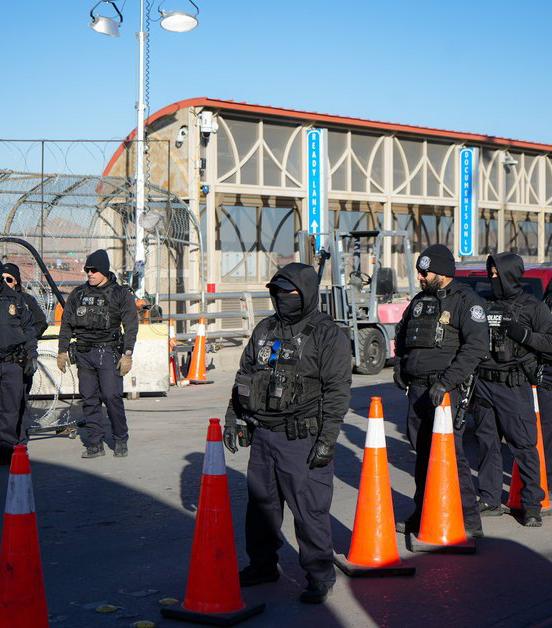
• Trump’s remarks indicate that Mexico may need to implement additional measures to satisfy U.S. demands, prolonging trade uncertainty.
• The threat of tariffs remains, which could strain diplomatic ties and impact ongoing negotiations.
• The situation highlights the complex balance between economic cooperation and political pressure in U.S.-Mexico relations.
SOURCE: EL UNIVERSAL
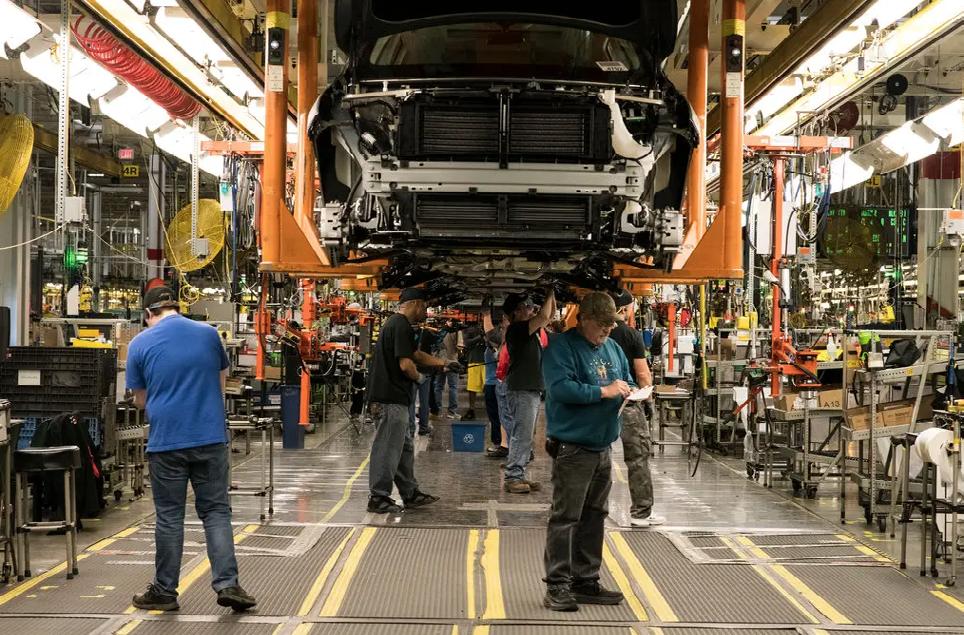
Global automakers are preparing strategies to counter the potential 25% tariff that the United States may impose on imports from Mexico and Canada, as warned by Fitch Ratings. The tariffs could pressure automakers’ credit ratings by increasing costs and disrupting supply chains. Companies are evaluating options such as diversifying suppliers, adjusting prices, and optimizing costs to mitigate the impact. However, no major production changes are expected until the U.S. im-
plements the policy. Companies like General Motors, Honda, Nissan, and Stellantis, which heavily rely on manufacturing in Mexico and Canada, are particularly at risk. Mexican car exports have already seen a decline, and the situation is compounded by broader industry challenges, including demand slowdowns and the shift to electric vehicles.
SOURCE: MEXICO NOW
Changan México officially joined the Electro Mobility Association (EMA), reinforcing its commitment to reducing emissions and promoting clean technologies as part of the transition to sustainable mobility in Mexico. The EMA aims to have 50% electric vehicles on the road by 2030 and 100% by 2035, focusing on emission reductions, favorable regulations, charging infrastructure, and economic growth. As part of its plan, Changan will launch seven new products in Mexico by early 2025, with 60% focused on clean technologies, including electric and plug-in hybrid vehicles. The move reflects Changan’s goal to lead the shift towards sustainable mobility, supported by record sales of electric and hybrid vehicles in Mexico in recent years. The addition of Changan to the EMA strengthens Mexico’s electric mobility ecosystem and expands vehicle options for consumers, with a focus on better pricing and competitiveness.
SOURCE: MEXICO INDUSTRY

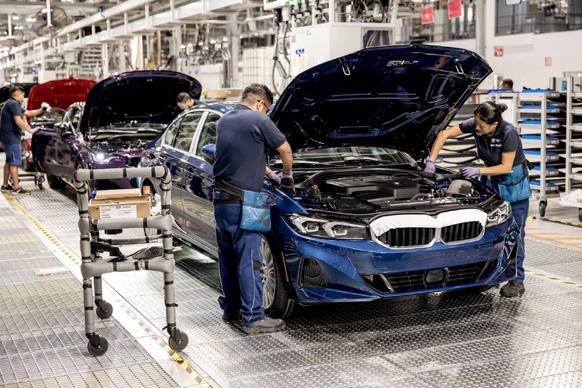
BMW is expanding its electric vehicle (EV) and battery production in Mexico, despite global trade shifts and U.S. policies favoring domestic manufacturing. The company is investing $800 million in its San Luis Potosi plant, which will begin producing high-voltage battery packs this year and prepare for EV production by 2027. BMW’s commitment to Mexico remains strong, as the country is a crucial part of its supply chain and workforce, with the San Luis Potosi plant exclusively producing the M2 model for global distribution. Industry experts emphasize that relocating production from Mexico is financially and logistically challenging, given the country’s established manufacturing capabilities and specialized labor force. With 40% of the plant’s production destined for the U.S., BMW’s diversified export markets help reduce its exposure to trade policy changes.
SOURCE: MEXICO BUSINESS NEWS


On Tuesday, former municipal president Francisco Pérez Tejada Padilla was officially sworn in as the new president of the Board of Directors of the Mexicali Industrial Development Commission. He will serve in this role for the 2025-2027 term. The ceremony was led by Baja California’s Secretary of Economy, Kurt Honold Morales.
SOURCE: INDUSTRIAL NEWS BC


Itesca has inaugurated an ISO 6-class cleanroom, a high-tech facility designed for semiconductor research and manufacturing. The new infrastructure, received by Director Margarita Vélez de la Rocha, marks the first phase of a project that will later include advanced equipment for semiconductor design and fabrication. This cleanroom strengthens Itesca’s role in energy transition and technological innovation, supporting the Sonora Sustainable Energy Plan led by Governor Alfonso Durazo.
SOURCE: NOTIO SONORA


Expo Manufactura 2025, the largest manufacturing event in Mexico and Latin America, was inaugurated in Monterrey’s Cintermex, featuring 168 exhibitors from 20 countries. Governor Samuel García highlighted manufacturing’s economic importance and announced a financial package to support SMEs, enhance local supply chains, and promote international trade. Key initiatives include the “Made in Nuevo León” program, increased SME financing, and investment in automation. The event also features a Caintra business matchmaking session with over 1,000 projected meetings and a potential impact of 1 billion pesos. Bosch Mexico introduced Nexo 2.0, a smart manufacturing innovation, while the event launched a social initiative, “Hambre Cero,” to combat food insecurity. Running from February 11-13, Expo Manufactura 2025 serves as a hub for industry innovation, networking, and nearshoring growth in Latin America.
SOURCE: CLUSTER INDUSTRIAL
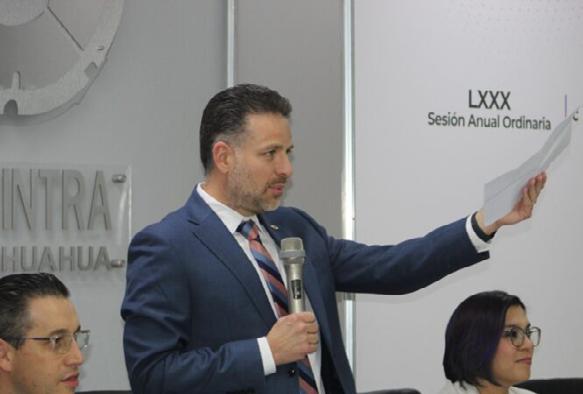

Canacintra Chihuahua re-elected Armando Gutiérrez Cuevas as president for a third term, focusing on strengthening the local industry amid global challenges. The organization will prioritize value creation, enhance strategic services, and reduce dependence on external factors while constructing a new headquarters. Gutiérrez emphasized that Mexico’s main challenge is internal, advocating for policies that boost local competitiveness. Canacintra will also host a high-level business forum and leverage the U.S. talent shortage to position Chihuahua as a key industrial partner in North America’s manufacturing resurgence.
SOURCE: EL HERALDO DE CHIHUAHUA

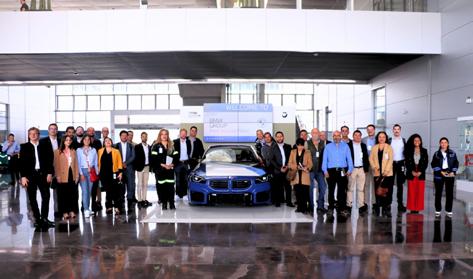

The Franco-Mexican Chamber of Commerce and Industry (CCI) led a trade mission to San Luis Potosí, engaging in strategic meetings with executives from global companies such as BMW, Veolia, and Valeo. The delegation also met with representatives from Metalor, Plastic Omnium, Flexitech, Wabtech, and Saint Gobain to strengthen industrial ties between France and Mexico with government support. At BMW’s San Luis Potosí plant, discussions focused on industrial growth, technological innovation, and automotive sector collaboration. Meetings with Veolia executives covered environmental management and sustainable solutions, while at Valeo Térmico 2, Director Florian Leveille presented the site’s strategic vision and key figures, concluding with a tour and a meeting with the procurement department.
SOURCE: MEXICO INDUSTRY

Executives from Semtech, a leader in semiconductor design and manufacturing, met with representatives from the Aguascalientes government. The meeting included Sr. Hong Q. Hou, CEO of Semtech; Monica Van Berkel, Senior Vice President and HR Director; Jorge Varona, General Director of Semtech Mexico; Governor Tere Jiménez; Jorge Andrade, Undersecretary of Investment and Development; and Esaú Garza de Vega, head of SEDECyT Aguascalientes. Key topics included strengthening the semiconductor ecosystem in the state, leveraging highly skilled talent, and addressing the need for specialized workforce development and infrastructure. A major milestone in this process is Semtech’s expansion in Aguascalientes with its semiconductor testing and validation laboratory, a strategic investment that will bring processes historically concentrated in Asia to Mexico. Esaú Garza de Vega highlighted that this expansion will play a crucial role in diversifying and strengthening the global semiconductor value chain, positioning Aguascalientes as a key player in the industry.
SOURCE: MEXICO INDUSTRY


City Energy and Grupo Solarever, through their SEV (Solarever Electric Vehicles) brand, inaugurated their first charging station in Iztacalco, Mexico City, as part of a national initiative aligned with the National Electromobility Plan. The project aims to expand clean energy access and accelerate Mexico’s transition to sustainable mobility. The first station features 10 fast chargers (30kW and 60kW DC), capable of charging up to 180 vehicles daily with a 65% utilization rate. SEV chargers support GBT connectors, enhancing accessibility. City Energy CEO Guillermo Saucedo emphasized their mission to create a strong electric mobility ecosystem in Mexico. The initiative includes six charging stations nationwide by late 2025, with upcoming locations in Coyoacán, Querétaro, Monterrey, and Guadalajara. A total investment of $3.5 million will ensure 24/7 operation. SEV CEO Juan Manuel Cerdeira reaffirmed their commitment to positioning Mexico as a leader in clean energy solutions.
SOURCE: MEXICO INDUSTRY
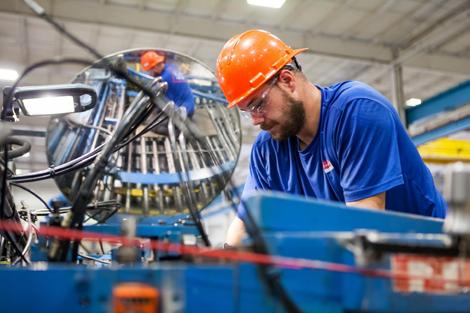
The Secretariat of Economic Development (SEDECO) will promote foreign investment in Mexico City to strengthen the capital’s economy. During a meeting with Morena legislators, SEDECO head Manola Zabalza Aldama highlighted the role of the new Investment Attraction Agency in securing $10 billion in investment projects. Zabalza Aldama emphasized the agency’s objectives, including ensuring efficient supply channels for commerce, goods distribution, and services while fostering economic growth. SEDECO will also provide advisory, training, and national and international business connections. In the first 100 days, affirmative actions have supported women, with the city government committing 10% of public contracts to women-led businesses. SEDECO aims to help businesses establish themselves and maximize investment benefits for residents.
SOURCE: MSN


The State of Mexico (Edomex) has joined the national “Plan México” strategy to boost economic growth, attract investment, and generate jobs. Governor Delfina Gómez Álvarez announced the initiative, emphasizing the state’s leadership in foreign direct investment (FDI), having secured $1 billion in the third quarter of 2024, representing 31.1% of the national total. During a meeting with business leaders from the Mexican Business Coordinating Council (CCE) and the Mexican Association of Real Estate Trusts (AMEFRIBRAS), Gómez reaffirmed her commitment to fostering investment and job creation. She expressed gratitude to companies investing in the state, emphasizing its economic potential. “Plan México,” launched by President Claudia Sheinbaum, aims to position Mexico among the world’s top 10 economies by 2030, creating 1.5 million jobs annually. Edomex plays a key role, also leading in employment generation with 132,922 new registrations in the Mexican Social Security Institute (IMSS), accounting for 20.6% of the national total.
SOURCE: MILENIO
The State of Mexico’s Secretariat of Mobility (Semov) has unveiled the “Metromex” project, also known as “Plan Colibrí,” aimed at improving connectivity between key locations in the State of Mexico and Mexico City. The initiative includes eight planned lines, though only two will begin operations initially. Line 1 will run from Las Américas in Ecatepec to Tlalnepantla using bi-articulated Mexibús units, linking with Mexibús lines 2, 3, and 4. Line 2 will connect Cuatro Caminos to Tlalnepantla, integrating Mexibús and Metro, and linking with Metro lines 1, 5, and 8. Other planned lines include connections to Cuautitlán Izcalli, Martín Carrera, Atizapán, Coatepec, Texcoco, and Naucalpan, incorporating Mexibús, Metro, light rail, and suburban trains. Semov has not announced the project’s start date, budget, or the creation of a decentralized agency for its execution, stating that planning will begin “from scratch” and funding may be approved in 2026.
SOURCE: BUZOS

City Energy and Solarever will invest $3.5 million to build six charging stations. Two will be installed in Coyoacán and Querétaro, with all six strategically placed in Monterrey and Guadalajara by 2025.
DUAL, a South Korean automotive components manufacturer, will invest $9 million in its first Mexican plant in Monclova. The initial phase will create over 850 jobs, strengthening the region’s automotive sector.
Nuevo Laredo has inaugurated the Patrick J. Ottensmeyer International Railway Bridge, with a $100 million investment. This project will double the freight crossing capacity between Mexico, the United States, and Canada.
BMTS Technology is expanding its Ramos Arizpe plant with a $25 million investment, boosting production by 40%. The expansion will enable 2 million turbochargers annually and create 400 jobs in Coahuila.
Viva Aerobus announced a 4 billion pesos investment to build a maintenance, repair, and overhaul (MRO) facility at Querétaro Airport. The project will generate 2,000 direct and 1,000 indirect jobs, with an annual

capacity of 160 aircraft, enhancing the state’s connectivity and competitiveness.
Exo-s will invest 300 million pesos to expand its plant in San Juan del Río, Querétaro, adding four new machines to enhance automotive production. The expansion will create 100 jobs and strengthen its presence in Mexico.
Ahresty will invest 900 million pesos to expand its plant in Zacatecas, creating 200 jobs and enhancing aluminum parts production for the automotive industry. This expansion strengthens the supply chain and solidifies Zacatecas’ role.
Aguascalientes invests 600 million pesos in Santa Fe Tecnopark II in San Francisco de los Romo. The 25-hectare park will host key industry companies and create 200 jobs in automotive, appliances, and logistics.
SOURCE: CLUSTER INDUSTRIAL
• BILL TO AMEND ARTICLE 123 OF THE CONSTITUTION
Presented by: Parliamentary Group of the Green Party (PVEM)
Objective: Establishes that for every five days of work, workers will be entitled to at least two days of rest. Transitional provisions state that the decree will take effect 365 calendar days after its publication in the Official Gazette. The Congress of the Union and state legislatures must align relevant legislation within six months of the decree’s entry into force.
Status: Presented to the plenary of the Chamber of Deputies
• BILL TO AMEND ARTICLE 123 OF THE CONSTITUTION
Presented by: Ricardo Anaya Cortés (PAN)
Objective: Mandates that the setting or revision of general and professional minimum wages must always exceed the combined cost of the basic food and non-food baskets, as determined by the National Council for the Evaluation of Social Development Policy, adjusted for the average household size.
Status: Presented to the plenary of the Senate
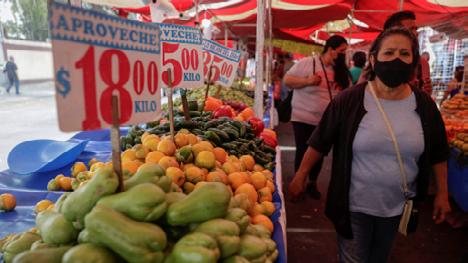
• ADD FIFTH TITLE TO WORKERS’ FOOD ASSISTANCE LAW
Presented by: Manuel Añorve Baños (PRI)
Objective: Mandates the Mexican State to implement economic support policies for workers when inflation or adverse economic conditions significantly reduce their purchasing power. Measures may include direct cash transfers, food subsidies, and price controls on essential goods to ensure adequate nutrition for workers and their families.
Status: Presented to the plenary of the Senate
• BILL TO AMEND AND ADD VARIOUS PROVISIONS OF THE SOCIAL SECURITY LAW
Presented by: Amalia Dolores García Medina
Objective: Proposes increasing the minimum risk premium from 0.005 to 0.010 for occupational risk insurance. Doubles pension amounts for family dependents of disability pensioners and the assistance allowance for disabled pensioners. Also mandates that employers contribute 2% of the base salary for disability insurance coverage.
Status: Presented to the plenary of the Senate
• ARTICLE 11 OF THE LAW TO REGULATE FINANCIAL TECHNOLOGY INSTITUTIONS
Presented by: Sen. María Del Rocío Corona Nakamura (Jal - PVEM)
Objective: Ensures that only entities authorized by the National Banking and Securities Commission can operate or promote themselves as Financial Technology Institutions. Mandates periodic publication of authorized ITFs, requires clear service contracts, and prohibits unfair practices.
Status: Published in the Parliamentary Gazette
• BILL TO AMEND VARIOUS PROVISIONS OF THE VALUE ADDED TAX LAW
Presented by: Sen. Manuel Añorve Baños (GroPRI)
Objective: Proposes reducing the Value Added Tax (VAT) rate from 16% to 10% to alleviate the tax burden on consumers and stimulate economic activity.
Status: Published in the Parliamentary Gazette
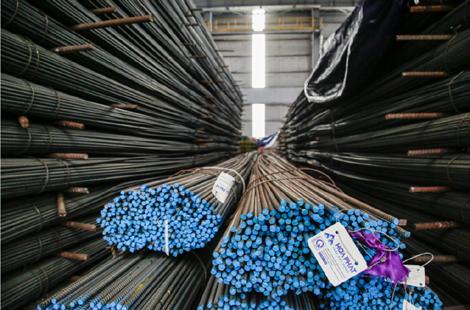
• BILL TO ENACT NEW ENERGY SECTOR LAWS AND REFORM VARIOUS FEDERAL STATUTES
Presented by: President Claudia Sheinbaum
Objective: Establishes new legal frameworks for state-owned energy enterprises, Comisión Federal de Electricidad (CFE) and Petróleos Mexicanos (PEMEX), defining them as public entities under a special regime. Eliminates subsidiaries, strengthens oversight of affiliates, and ensures strategic public service provision.
Status: Published in the Parliamentary Gazette
• BILL TO AMEND AND ADD VARIOUS PROVISIONS TO THE POLITICAL CONSTITUTION
Presented by: Sen. Agustín Dorantes Lambarri (LNal - PAN)
Objective: Prohibits discrimination arising from the use of artificial intelligence, cybertechnology, or neurotechnology. Mandates the State to promote cybersecurity and ensure AI-related technologies are safe, ethical, and human rights-compliant. Establishes a National Agency for AI and Cybersecurity and protects neuro-rights, particularly brain activity and related data. Grants Congress authority to legislate on cybersecurity, AI, telecommunications, and federal water use.
Status: Published in the Parliamentary Gazette
Tariffs and taxes are often confused, but they have distinct implications for businesses engaged in cross-border trade with Mexico. While both are government-imposed costs, tariffs regulate trade and protect domestic industries, whereas taxes fund public services and impact overall business expenses.
Understanding these key differences is essential for manufacturers and importers looking to optimize supply chains, manage costs, and stay compliant under agreements like the USMCA.
In our latest blog, we break down the impact of tariffs vs. taxes on your operations, covering crucial topics like VAT, import duties, and industry-specific rates. Don’t let hidden costs catch you off guard—stay informed and plan strategically.

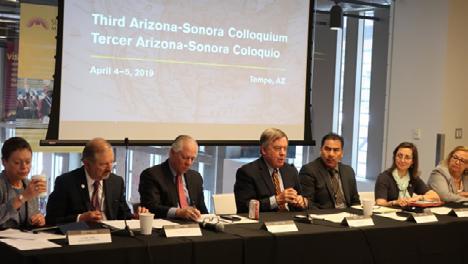
The Arizona-Sonora region is a powerhouse of U.S.-Mexico trade, moving over $35 billion in goods annually. As a key gateway for agriculture, aerospace, and manufacturing, this region benefits from deep economic ties, strong infrastructure, and a skilled binational workforce.
From the Twin Plant Model optimizing supply chains to the Phoenix-Hermosillo and Tucson-Nogales partnerships driving innovation and trade, the AriSonora region exemplifies successful cross-border collaboration.
Discover how this dynamic subregion fuels global commerce and why it remains a crucial hub for businesses looking to expand their operations.